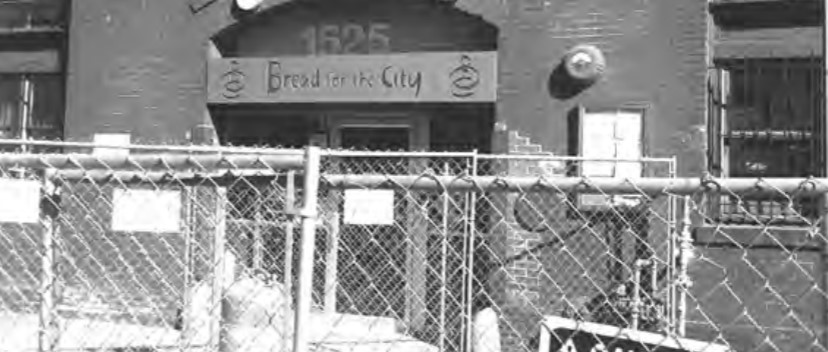While people rush in and out through the double doors leading to Bread for the City’s food pantry, a man sits resting his chin on his hand, waiting patiently to be called into the medical clinic.
“They usually move right along,” said James Butler, “When this expansion stuff is finished everything will run a lot smoother.”
Butler came to Bread for the City’s Northwest Center on Seventh Street over a year ago, after going to a local hospital when he had the flu. “I went over to Howard Hospital, but they didn’t help me much, so I came to Bread for the City, and they took care of me right away,” said Butler.
Representatives from Howard University Hospital were made aware of this statement, but have not replied on the record.
Like over 5,000 other D.C. residents, Butler comes to Bread for the City for medical help, and also relies on the organization for food.
For over three decades, Bread for the City has been dedicated to providing vulnerable residents of the District with comprehensive assistance, including food, clothing, medical care and legal and social services.
But at this point, Bread for the City’s modest facility is overwhelmed. There is no proper waiting room for residents picking up groceries. The hallway from the entrance to the grocery pantry is filled with clusters of people coming in, going out, elbowing through to offices and of course, waiting. With the increase of people coming in for help, the medical clinic has had no choice but to turn several away every day. Attorneys and social workers struggle to find private spaces to meet with their clients.
After starting an $8.25 million capital campaign in 2008 to double the size of the Northwest Center, construction has begun on the vacant lot next door.
As planned, the addition will give Bread for the City’s medical clinic three times its current capacity. Social service case managers will have private areas to meet with clients, the food pantry will no longer double as a storage area and the legal clinic will have office space of its own.
“We’ll be educating the community about all the ways the new building is going to advance our capacity to provide services and more,” said Greg Bloom, development associate for marketing and communications.
One of the biggest features of the expansion is the family friendly reception area. This area will have a public computer bar for residents to use while waiting to be helped.
After the expansion, residents will come in through one entrance, receive their groceries and exit through a different door, allowing better traffic flow.
“If they had more space, or a wider hallway my client might be able to get through here on her own,” said Oseh Thoranka.
Thoranka is an aid for an elderly woman with knee problems. Her client can walk on her own, but it’s easier and faster in her wheelchair, but the wheelchair can’t maneuver through the narrow hallway.
Along with the expansion of the hallway and waiting rooms, there will also be 10 medical rooms, an increase of four. There will be an eleventh medical exam room used for special services, such as wound care and diabetes counseling.
Within five years of project completion, Bread for the City plans to have a two-chair dental suite designed for standard dental services, such as cleanings and fillings, as well as a vision room to provide routine vision screening services. In the meantime, these rooms will both be used as extra medical exam rooms.
“Our mission talks about providing services in an atmosphere of dignity and respect, we’re doing that by giving them the space they need,” Erin Holmes, the organization’s volunteer coordinator said.
The expansion will also include a green roof garden.
The garden will provide space to teach workshops on nutrition and growing one’s own food, and is also great for the environment.
According to Bloom, the roof garden is expected to ‘come alive’ in this coming spring.







